QuestionI found a baby dove on somebody's yard on Sunday. it was defiantly a baby dove with 'pin' feathers. i read online that the #doves# eat cracked corn and seeds. i have a pet parrot too, so i took some seeds that didn't have shells and looked tasty for the babies food. i also took some kernel corn and put them all in a bag. i used a meat tenderizer and smashed every thing in the bag and shook it. i repeated until i got a powder substance. i then put cereal #corn flakes# and mixed it with water. now i had watery bran mush. i put some "mush" in a tube that was meant to shoot medicine into your kids mouth, but was never used. then i put the powder in and shook it. the dove opened his mouth wide and took the food happily. the baby dove keeps "crying" or a weird 'eeee-ee-eeee' and running back an' forth in his cage.what is the matter with him? he whistles in response to my sisters whistle. why does he do that? i give the baby water by dipping my finger in the water and dripping into the cracks of his beak. he likes it. i have noticed since today is monday, that he is drinking on his own a little. how should i fix his little wound on his wing? on his left wing there is a small cut that might be an inch long. sometimes the dove goes wee_IEEE? why? what should i do and how do i take care of him? what is the best thing for this little guy? what do you recommend and do you have any advice for me? please help me....
AnswerHi, Connie.
Good for you for taking this little guy in!
This baby most likely keeps crying because it is hungry, needs water, or needs warmth. A lot of times, baby birds cry whenever they hear or see their mom/dad because they relate them to food and warmth. This baby dove may relate you/your sister's whistle in the same manner as s/he would to his/her parents.
So far, you've done a good job of caring for this baby. You need to keep getting food and water down this baby's throat into its crop. You can feed this bird baby parrot handfeeding formula (visit your local pet shop that caters to birds), Ensure Plus, Slimfast, human infant formula, etc. When the baby starts pecking at small grains/seed that you lay on the ground or bottom of its container, then it is ready to start weaning and eating on its own. I've raised many baby pigeons that started eating on their own when they were 2 weeks old. Sprinkle small parrot/pigeon/wild bird seed/grains where the baby can see them in its enclosure and s/he will naturally start pecking at them if the bird is old enough. You'll also need to continue providing water. However, if you dip the baby's beak down into a small container of water (keep water away from the nostrils), the baby will learn to drink on its own. Doves/pigeons need to take a drink of water after eating grain to help soften up the grain in their crops to aid in digestion. It may help to use an eyedropper or handfeeding syringe that you can purchase at pet stores that cater to birds if you need to handfeed.
If you handfeed the baby with baby parrot handfeeding formula or other type of nongrain food (liquid food), you must feed it to the baby at 102-105 degrees F. Otherwise, it can result in crop problems and/or the baby might not be able to metabolize it. I've also taken pigeon grains and pushed individual grains down baby pigeon's throats in order to keep them nourished. How you feed this baby depends on how old the baby is and what the baby is ready for. Keep grains in the bird's enclosure 24/7 and watch to see if the baby is consuming. If the baby is eating grains, then you can reduce the number of handfeedings or perhaps limit them completely. Be sure to offer the baby small grains at first, as some of the larger grains won't fit down the baby's throat yet. As the baby grows, you can provide larger grains.
Until the baby is fully feathered, it will need some warmth in order for its food to metabolize from its crop. You can use a heating pad under its enclosure/cage. However, if the ambient temperature is above about 75 degrees F and the baby is even partially feathered, it should stay warm enough without any extra heat. If it keeps crying even when full, it might just be cold and need some heat.
As far as the injury goes, as long as it isn't an open wound, isn't bleeding, isn't infected, etc., then just keep it clean and dry. It will heal on it's own.
Hopefully, you realize that this baby may (if it hasn't already) imprint on you, which can make it difficult to release the bird back into the wild. If you intend to release this bird, minimize your contact with it to only that which is necessary and release it as soon as it is able to fend for itself. Release it where there is a group of other doves in your area. It will learn from the other doves. It must be able to fly for sure, so ensure the wing injury doesn't hamper its ability to fly before you release it. If you live in an area that has 4 seasons in the year, be sure you release this baby as soon as possible, so it can learn how to survive on its own before winter hits.
Best of luck to you and the baby dove!
Chrys Meatyard

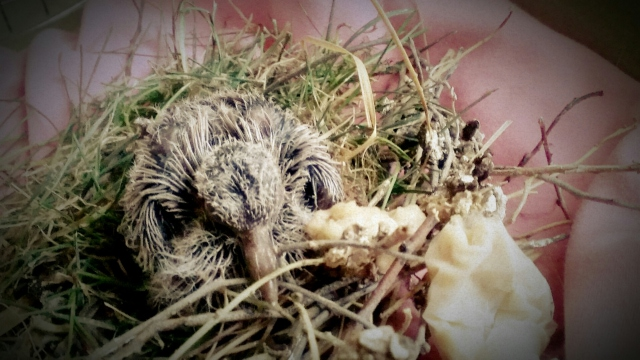 Baby Dove Care
Question
Baby Bird 1 Baby Bird 2
Hello, to
Baby Dove Care
Question
Baby Bird 1 Baby Bird 2
Hello, to
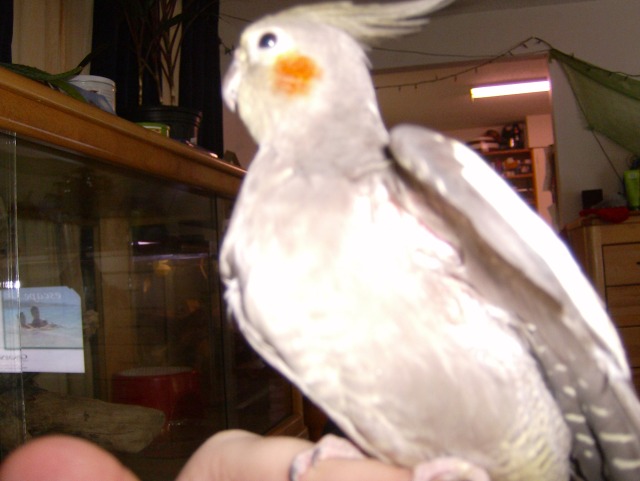 my cockitale mocha
QuestionQUESTION: I have a cokitale that will be 3 on A
my cockitale mocha
QuestionQUESTION: I have a cokitale that will be 3 on A
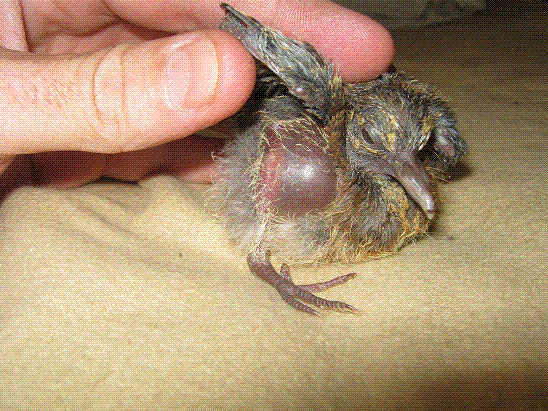 Baby Pigeon
Question
Cosmo
Hi Roger
We picked up a baby pigeon, ap
Baby Pigeon
Question
Cosmo
Hi Roger
We picked up a baby pigeon, ap
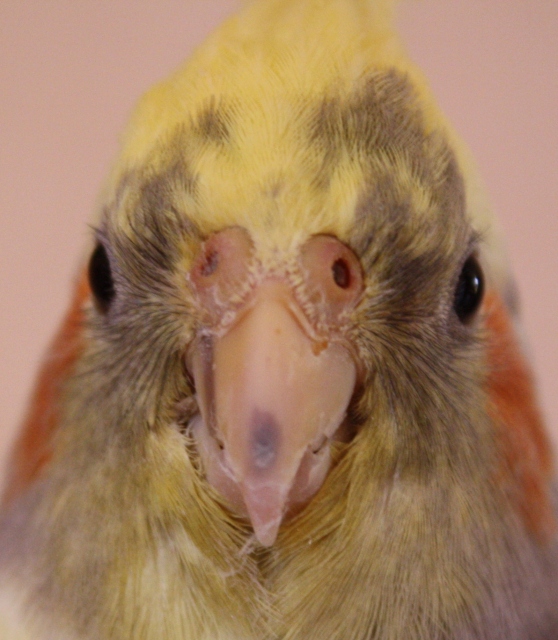 Bruise-like discoloration of beak (Cockatiel)
QuestionSasha
QUESTION: Our Cockatiel has develo
Bruise-like discoloration of beak (Cockatiel)
QuestionSasha
QUESTION: Our Cockatiel has develo
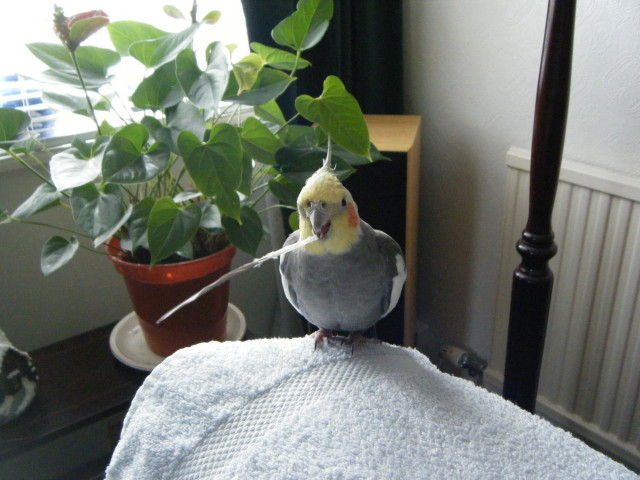 boris the cockatiel
Question
boris
Hello , I have a male cockatiel called b
boris the cockatiel
Question
boris
Hello , I have a male cockatiel called b